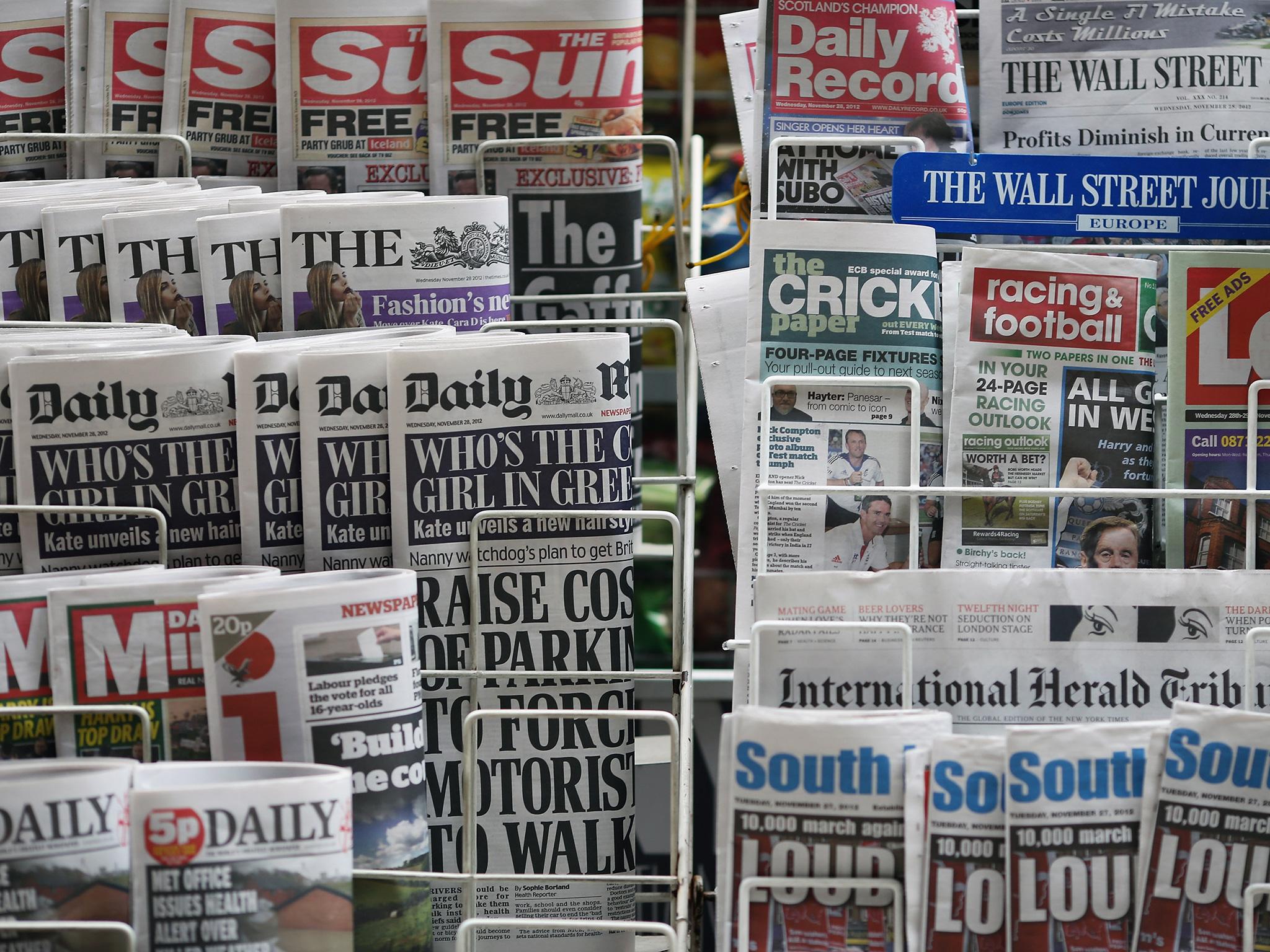In 2017, further interference from the state could spell the end for press freedom
The potential imposition of punitive legal costs raises fundamental questions about press freedom in this country and about the future ability of journalists to hold the powerful to account. It’s enough to make one splutter over the turkey leftovers


It is now over four years since the publication of the Leveson Report, that lengthy tome which followed months of public hearings at the Royal Courts of Justice. A great deal of water has passed under the bridge since then, but wrangling over Leveson’s legacy – and for that matter the inquiry’s future – remains bitter.
As any regulation wonk will recall, the Inquiry was announced in the summer of 2011 in response to revelations about the extent of phone-hacking by journalists at the News of the World – and particularly the discovery that the voicemail of murdered teenager Milly Dowler had been targeted. The inquiry’s aim was to investigate the “culture, practises and ethics of the press”, examining in particular contacts between press and police and potential changes to the regulatory landscape.
News of the World had ceased to exist even before the inquiry was announced. The Press Complaints Commission, my former employer, closed in 2013 and a new voluntary organisation, the Independent Press Standards Organisation (Ipso) took its place. Some publications including The Independent, The Guardian and Financial Times, decided not to sign up to Ipso and instead operate their own, in-house, complaints-handling mechanisms.
Leveson had concluded that self-regulation of the press remained preferable to rules imposed and policed by the state. But he argued that a new regulator would need to be backed by a modicum of statute (something of a contradiction in terms) to ensure it had real teeth. He also suggested that it should oversee a system of arbitration which would in principle provide cheap access to justice for claimants and – since it would be cheaper than a court action – be less burdensome for publishers.
Parliament’s response to Leveson’s proposals was to use the archaic tool of a Royal Charter to establish a Recognition Panel, which would in turn grant formal approval to any regulator meeting a set of criteria taken from the Leveson Report. To encourage membership of any such regulator an addendum was made to the 2013 Crime & Courts Act which, if triggered, would mean any news publisher not signed up to a “recognised regulator” would face picking up the entire bill (for both parties) of any legal proceedings brought against it – even if the publisher won. This provision, Section 40 of the Act, is now the subject of a Government consultation.
OK, I get it; we’re in the midst of Christmas jollity and all this sounds like an esoteric debate about technicalities of the law. Yet in truth, the potential imposition of such punitive legal costs raises fundamental questions about press freedom in this country and about the future ability of journalists to hold the powerful to account. It’s enough to make one splutter over the turkey leftovers.
The reason why the issue of Section 40 is now so crucial is that an alternative regulator has emerged and gained a seal of approval from the state-backed Recognition Panel. Called Impress, it is funded largely by charities set up by Max Mosley, the former Formula 1 boss and long-term critic of tabloid newspapers. It currently has no members from among the UK’s major publishers, print or digital. It appears not to have handled any complaints against the thirty or so publications it regulates.
Nevertheless, if the Government decides to implement Section 40, any publisher which does not sign up to Impress will be in an utterly invidious position, forced to pay vast sums to defend unmerited legal complaints, or more likely cave in to demands for unwarranted retractions or apologies in order to avoid prohibitive court costs. This would affect any member of Ipso and any title which operates an internal complaints system. In other words all national newspapers, the vast majority of the regional press and any online news site which has a base in the UK (not only The Indy but also Buzzfeed, Huffington Post UK and countless more).
Websites run by broadcasters other than the BBC might also be captured since Ofcom’s remit does not cover large swathes of online content produced by those it regulates. Section 40 would sanction legal punishment on the basis of a publisher’s identity, not its behaviour, thereby flying in the face of natural justice.
The truth is, for most news publishers, journalism is not a hugely profitable business. For a great many, a raft of unmerited legal actions for which they must nonetheless pay the bill, could spell the end. Alternatively, the affected media will simply stop publishing any story that could possibly be regarded as negative about an identifiable individual or company.
In the year of “fake news” few might feel like shedding a tear for journalistic special pleading. Yet polarised as the media is, there is almost unanimity on this subject: the implementation of Section 40 would be a disaster for press freedom in the UK. Much better for this iniquitous provision to be repealed.


Join our commenting forum
Join thought-provoking conversations, follow other Independent readers and see their replies